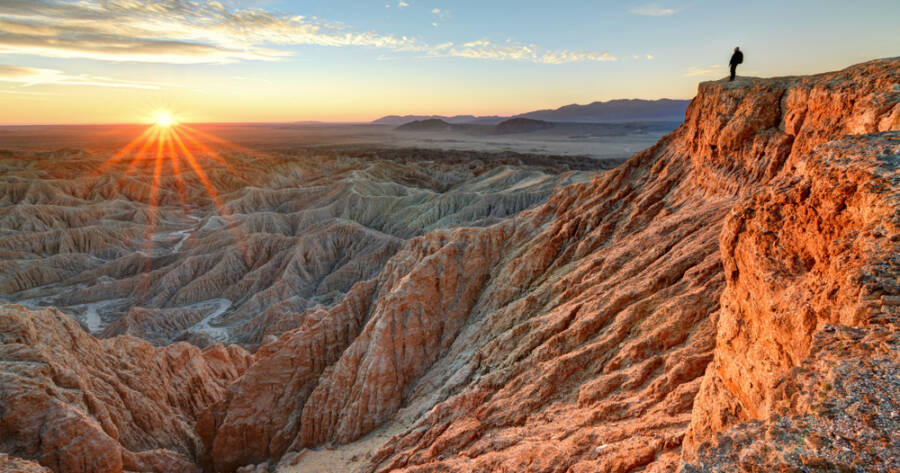In a world that’s always buzzing, silence has become a rare and precious experience. From constant notifications to background chatter, our senses are rarely given the chance to rest. But silence isn’t just the absence of noise—it’s a space where we can hear ourselves think, reconnect with our emotions, and rediscover a sense of calm. For travelers seeking more than just scenery, there are destinations around the world that offer something deeper: the gift of inner stillness through intentional silence.
Remote Monasteries in the Mountains
For centuries, monasteries have served as places of quiet reflection, meditation, and spiritual retreat. Many are nestled in mountain regions where nature’s silence surrounds you. In the United States, places like the Monastery of Christ in the Desert in New Mexico offer guests a chance to unplug completely. Visitors are invited to join in the rhythms of monastic life—prayers, simple meals, and deep quiet.
Across the globe, similar sanctuaries exist. The Tibetan monasteries of Ladakh or the Benedictine retreats in the Italian Alps provide incredible silence, paired with breathtaking natural settings. Here, silence isn’t empty—it’s part of a daily practice that nurtures the soul.
These monasteries often welcome people of all backgrounds and faiths. You don’t need to be religious to experience the stillness they offer—just open to slowing down and listening inward.
Desert Landscapes with Endless Horizons
There’s something uniquely calming about wide, open spaces—and deserts offer some of the quietest places on Earth. In the American Southwest, destinations like Utah’s Canyonlands or California’s Anza-Borrego Desert State Park offer sweeping vistas with very little noise pollution. At night, the silence becomes even more profound, broken only by the occasional breeze or call of distant wildlife.
Internationally, deserts like Morocco’s Sahara or Australia’s Outback offer similar experiences. You may ride a camel or walk for miles without hearing another voice. These environments invite contemplation and stillness in a way that few others can.
The physical stillness of the land mirrors the kind of inner calm many travelers are seeking. It’s a reminder that silence doesn’t have to be forced—it can simply be felt, when everything else falls away.
Forest Retreats and Off-Grid Cabins
Forests are naturally calming, and studies have shown that spending time among trees reduces stress and improves focus. In North America, regions like the Adirondacks in New York, the Olympic Peninsula in Washington, or the forests of Vermont offer off-grid cabins and remote trails where silence is part of the daily rhythm.
What makes forests unique is their living silence. You may hear birdsong, the crunch of leaves, or distant flowing water—but there’s no traffic, no digital noise, and no social pressure. Time in these spaces feels slower and more intentional.
Forest monasteries and retreat centers also exist in places like Thailand and Japan, where silent walking meditations are a core part of the experience. These destinations invite guests to practice “forest bathing”—a mindful immersion in nature’s quiet beauty.
Silent Retreat Centers Around the World
Some places are designed specifically for silence. Vipassana meditation centers, found in the U.S. and around the world, offer 10-day retreats where participants take a vow of silence—no speaking, writing, or eye contact. It’s a deep and often challenging journey inward, supported by a structured daily schedule of meditation and reflection.
For a less intense experience, there are mindfulness retreats in places like Costa Rica, Bali, and the Pacific Northwest, where silence is woven into parts of the day. Guests are encouraged to turn off their phones, reduce speaking, and embrace quiet as a tool for growth.
These centers often include nourishing food, gentle yoga, and scenic surroundings that support emotional and mental clarity. Silence becomes not just a break from sound—but a return to balance.
When Quiet Becomes a Compass
We often think of travel as movement—new places, new cultures, new stories. But sometimes the most powerful journey is the one that turns inward. Practicing silence doesn’t mean isolating yourself; it means reconnecting with what matters.
Whether you’re sitting beneath a desert sky or walking alone through a misty forest, these destinations offer more than beauty—they offer space. Space to listen, reflect, and breathe without interruption. In a world of endless input, choosing silence may be the most radical—and healing—thing you can do.

